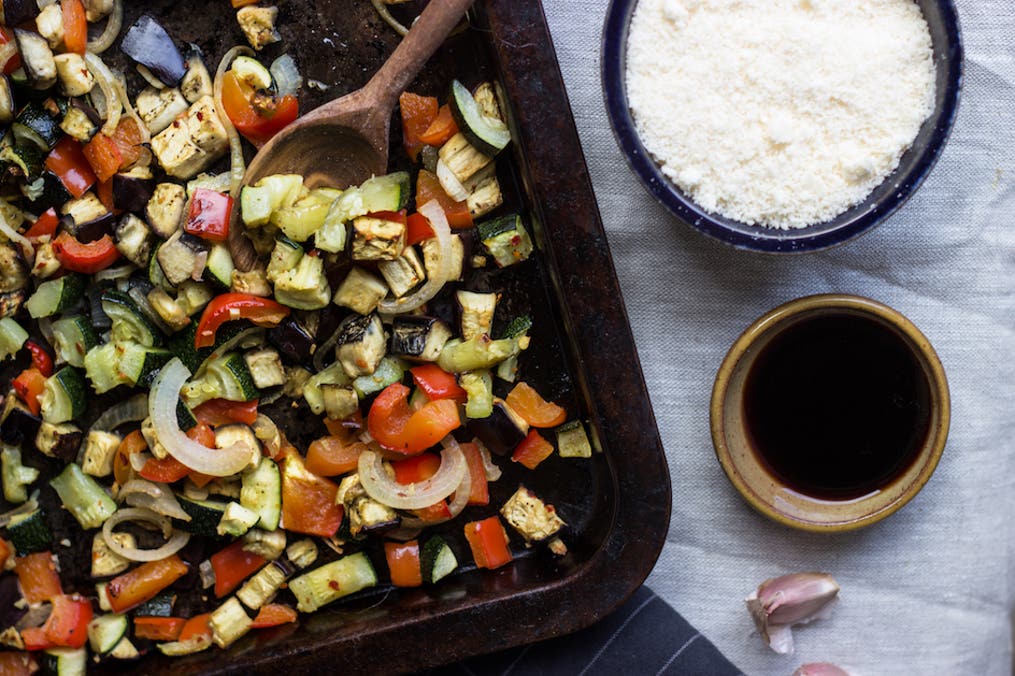Winter’s here. It’s cold and it’s dark... pretty much a breeding ground for illness and injury. But the change in season doesn’t have to impact your training routine; fuelling your body with the right nutrition is a great start to helping you become a stronger and better athlete all year round. Freeletics Health Specialist Leanne Edermaniger is here to tell you how:
Winter Can Be a Good Excuse for Bad Habits
As the days get shorter and colder, it’s easy for us to slip into bad habits like skipping training sessions or comfort eating. Although missing the odd session or eating a treat every now and again won’t cause you much harm, doing it on a regular basis can lead to weight gain, plateauing performance and can leave you more susceptible to illness and injury.
However, there are some nutritional habits you can incorporate into your winter routine to ensure you stay fighting fit.
What Should I Be Eating?
Food is our fuel and we need it to keep us moving. In the winter, as conditions become harsher, it is essential that we eat the right foods.
Pre-Training You should set yourself up with a carbohydrate-based meal. Carbohydrates are the human body’s main energy source and are broken down by the body into glucose which is absorbed into the bloodstream. The glucose can then be used by cells to fuel our day-to-day activities.
There are three types of carbohydrate: sugar, starch and fibre. If we consume more glucose than is needed, it can be stored as glycogen in our liver and muscles ready to be used later.
High fibre, starchy based carbohydrates release energy slower than sugary foods and drinks. So, opt for foods like porridge, wholegrains or pasta before you train which will release sugar into your bloodstream slowly and steadily. During colder spells, we may use more calories to keep warm. Instead of opting for sugary treats, which only provide a short burst of calorific energy, try heartier and in-season root vegetables such as parsnips, carrots, squashes and potatoes to help you fill up and fuel you for longer. Stews and soups can be great meals which are packed full of vital nutrients and can also keep you warm when the temperature drops outside.
It’s not a good idea to train on an empty stomach particularly in the winter as this can impact on your training; when it’s cold, your body requires more energy as it has to work harder to circulate the blood around the body. Training on an empty stomach could encourage your body to start breaking down your muscle to acquire energy.

Vitamin D Vitamin D is widely known as the ‘sunshine vitamin’ because it is made in our skin when we are exposed to sunlight. However, getting enough vitamin D in the winter is made harder by fewer sunshine hours and poorer weather.
It is thought that half of the world’s population has vitamin D insufficiency. We need vitamin D to keep our bones, teeth and muscles healthy. Without enough in our diet, we risk bone fractures and weaker muscles and, in severe cases, this can lead to osteoporosis and osteomalacia.
We require approximately 1000-1500 hours of sunshine during the spring, summer and autumn months to last us through the winter. However, it’s not always possible to achieve this and, instead, we may need to supplement our vitamin D intake.
Foods containing a lot of vitamin D include: ● Red meat ● Mackerel ● Salmon ● Sardines ● Liver ● Egg yolks ● Fortified breakfast cereals and spreads
Stay Hydrated One of the biggest mistakes we make in the winter is not drinking enough fluid. When we’re cold we feel less thirsty, even though we may still be sweating the same amounts during training.
Dehydration can dramatically affect our performance as fluids keep the blood flowing, allowing our muscles to perform. When we breathe in cold air, our body warms it up, so when we exhale the humidified air, we can lose significant amounts of water. Training in extra or thicker layers can cause you to sweat even more than usual, and this fluid loss needs to be replaced.
Dehydration can place a physiological strain on our body by increasing heart rate and making the body unable to lose heat which is vital during exercise. Always hydrate before, during and after training, preferably with water to prevent dehydration.
Winter can be the perfect time to strengthen your weaknesses, but the risk of becoming ill or injured is far higher, so it is important that we take care of our nutrition and feed our body the right foods to keep it healthy. Training through the cold months will not only benefit your health, but you’ll feel great, too. Just remember, dress warm, eat right and stay hydrated!
References
- Arnaoutis, G et al. (2015). Fluid Balance During Training in Elite Young Athletes of Different Sports. J Strength Cond Res: 29(12), pp 3447-3452.
- Jéquier, E. (1994). Carbohydrates as a Source of Energy. Am J Clin Nutr: 59(suppl 3), pp 682S-685S.
- Nair, R and Maseeh, A. (2012). Vitamin D: The “Sunshine” Vitamin. J Pharmacol Pharmacother: 3(2), pp 118-126.
- Wyon, M, A., Koutedakis, Y., Wolman, R., Nevill, A, M and Allen, N. The Influence of Winter Vitamin D Supplementation on Muscle Function and Injury Occurrence in Elite Ballet Dancers: A Controlled Study. Journal of Science and Medicine in Sport.